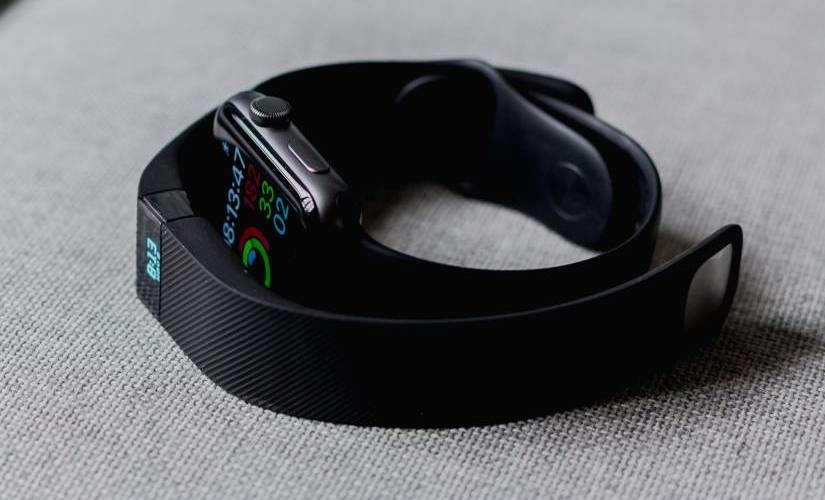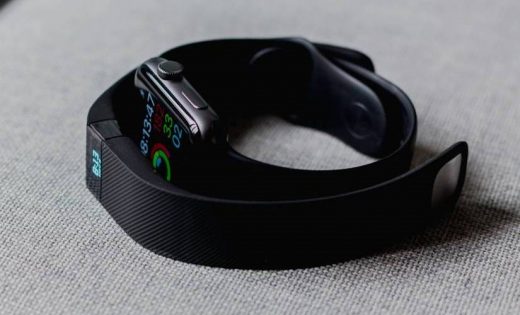How Health Literacy is Decoding the Human Longevity Mystery
How Health Literacy is Decoding the Human Longevity Mystery

Understanding how to be your healthiest self isn’t easy, and it’s not automatic. Health and wellness are complex topics with several nuances that can make most people feel overwhelmed and undereducated. When those feelings get too intense, people are more likely to shy away from health completely.
It can be easy for people to tune out when they come across health information and to feel suffocated by the sheer number of scientific studies or articles on wellness that spread like wildfire across the internet and take over social network feeds. Debates about plant-based diets and vaccination versus anti-vaccination circulate everywhere and continually compete to win people over with trending ideologies. Clickbait and fake news are just as real in the world of health as they are in politics.
The volume can indeed be overwhelming, and it’s natural for the brain to filter out nonessential information. But checking out altogether poses severe long-term risks to the health and finances of individuals, their families, and their communities.
Where We Are and Where We Can Be
American life expectancy has decreased for the third year in a row, and there’s a considerable disconnect in the conversation surrounding health. Studies show that a retired couple will need $ 280,000 for their medical expenses. Medicare spending is expected to double in the next decade, and the program will likely become unsustainable in less time than that.
To combat these encroaching realities, people will have to make their health even more of a priority. Strengthening health literacy — the self-education process by which we come to understand what works for us personally will begin to have an impact. Then, there will be more significant approaches to health backed by peer-reviewed research. Knowing that the healthy lifestyle approach that works for one person might differ from that of another will guide us — and the real self-education will begin.
We’re seeing the growth of wearable technology and innovations like Fitbit and Apple Health revolutionize the wellness space and help users understand their own needs and how to work with them. They’ve led to new interest and insights about what it means to be healthy, but technology alone isn’t enough. Chronic illnesses like obesity and diabetes continue to proliferate, creating a serious need to combine the power of these devices with education about what they mean for our lives and our health.
It’s exciting to think about how technology will transform the future, but we don’t have to wait for the future to pursue better lives. In the present, we have access to a wealth of knowledge that can help us become our healthiest selves for as long as possible. We have to know which knowledge is rooted in truth and will serve that purpose.
When people learn to digest credible health news and adopt healthy lifestyles, adverse health outcomes decrease.
More than that, having access to information on health lowers the costs of care and creates longer life expectancies.
The Scientific Secret to Longevity
When compared to the national average, higher per-capita health literacy correlates with lower mortality rates. The correlation is especially true in mortality due to the most common health issues impacting western populations, like diabetes, high blood pressure, obesity, and heart disease. Not only does higher health literacy mean lower mortality, but it also correlates with longer, higher-quality lives, and less illness. Of course, these issues haven’t touched on the big one: mental health. But technology can help in those specific expertise areas as well.
So how do we become more health-literate? Start by identifying gaps in our knowledge and understanding of wellness through regular knowledge assessments.
Leveraging gamification and social psychology to increase patient awareness and education is a root-cause approach that’s easy to take with the help of contemporary technology.
Equally, approaching health literacy through data science builds more effective models for identifying detrimental health issues or behaviors before they become critical. Precise guideline identifications allow policymakers and healthcare professionals to create more strategic methods for simultaneously decreasing healthcare costs and increasing the length and quality of life for people all over the world.
The Marriage of Health Literacy and Tech
Technology gives consumers data and access to the practical knowledge needed, but it’s still somewhat limited in its ability to synthesize and interpret that data. If people are going to harness their power, they have to know what the tech means and how to use it for good in their own lives.
Wearable technology is a great example of how some devices still have room for growth and how some are making strides. For example, not all devices can discern the nuances in heart rate during activity and resting heart rate. Most devices can’t determine a correlation between how many steps someone takes in a day, and his calories burned and consumed, but tech is getting us closer to the goal.
But some devices are providing more context. For example, continuous glucose monitors can help people learn the precise effects certain foods have on their blood pressure and body chemistry. With that information, users can amend their habits and discover their best personal approaches to living the healthiest lives possible.
Technology makes it possible to see our heart rate, step count, and estimated calorie intake. While there is still progress to be made in turning that information into action. There are a few ways tech is helping people progress toward greater health literacy already:
1. Social communities that crowdsource health and nutritional information
Facebook Groups, Twitter lists, and Reddit nutrition threads are all places where people are coming together to dig into the specific ways of exercise. Individuals are scouring the internet for nutrition can affect their lives and alleviate their health problems. While that’s not a perfect solution, it does let people find specific answers and suggestions when they feel medical advice has fallen short.
From beginner guides on vegan eating to in-depth lipid panel tracking for a carnivorous diet, communities are a great way to find information that demystifies health trends. Keep in mind, though, that seeking communities with trained or certified leaders is key to avoid false information. Conscious consumerism is critically important for those who want to use information from online communities to see long-term health benefits.
2. Wearables taking innovative AI approaches
Some wearable technology is making strides toward helping users become more health-literate by using artificial intelligence. When it comes to value and data visualization, Apple Watches and Apple Health are still the best options. But the Whoop has a great feature that can show heart rate insights to help users optimize their exercise routines for sleep and recovery. Another powerful tool is the Freestyle Libre glucose monitor, which helps users understand the immediate impacts of their nutrition choices, too.
3. Health literacy quizzes
Whether on a mobile app or webpage, health literacy quizzes provide health insights in a digestible way. The results can even subconsciously motivate users to start making incremental lifestyle choices. Questionnaires like these are developed by health experts and make learning about health and how individual decisions affect it something engaging for those who take them. The quizzes and other parts of the healthcare system address issues right down to an anxiety level. Best of all, they use rewards rather than penalties to promote a healthier lifestyle.
Ultimately, technology still has a long way to go in helping people turn health information into action. We have attacked the cybersecurity data problems, and tech is already revolutionizing global health literacy in myriad ways. Informed choices will lead to better health in the present and longevity for many years to come.
Image Credit: andres-urena-V7UoMNWsYsg-unsplash
The post How Health Literacy is Decoding the Human Longevity Mystery appeared first on ReadWrite.
(39)


